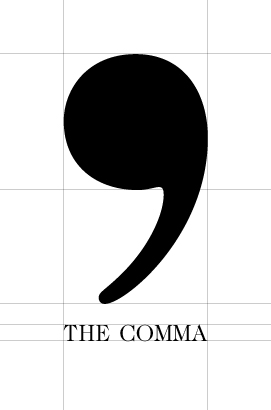The Comma - part two. by giraffmang |

In the previous instalment, the four common usages for the comma were explored. In case you missed it, here’s a brief recap –
Commas can change the meaning of a sentence altogether, dependent upon their placement, or omission, whilst remaining grammatically correct. Even though all the words remain the same and maintain the same order, the sentence has completely different connotations. Below are some examples. All the time, machines were getting more intelligent and powerful. The meaning here is that all machines are becoming more intelligent and more powerful. All the time machines were getting more intelligent and powerful. Same words, same sentence, different punctuation. The sentence now explains that it is time machines which are becoming more powerful and intelligent as opposed to any other type of machine. Hurry up and shoot, Grandad. Here we have a grandchild encouraging their grandfather to be quick about taking his shot. Hurry up and shoot Grandad. Well, looks like someone isn’t very happy with Grandad and wishes them dead! In the two examples above, the omission of a comma drastically alters the sentence meaning. In the case of the latter, fatally so. When she’s not working, she loves eating, her dog, and her family. This lovely lady loves to eat. Loves her dog. Loves her family. When she’s not working, she loves eating her dog and her family. In this instance, the initial comma for the fronted adverbial (When she’s not working) is left intact. However, the omission of commas from the listed items takes a gruesome turn. The lady in question now enjoys a meal made from her dog and her family members… She found, to her horror, films were boring. Sounds like this woman watched a few different kinds of films and found all of them to be to her displeasure. She found, to her, horror films were boring. Whereas this woman discovered that horror films alone held no interest for her. So, as you can see, the humble comma is not just a grammatical servant but is also instrumental in giving the reader the right information. Whoever said punctuation was boring and unnecessary needs to be taken out back and given the same treatment as Grandad…
|
| ©
Copyright 2024.
giraffmang
All rights reserved. giraffmang has granted FanStory.com, its affiliates and its syndicates non-exclusive rights to display this work. |



